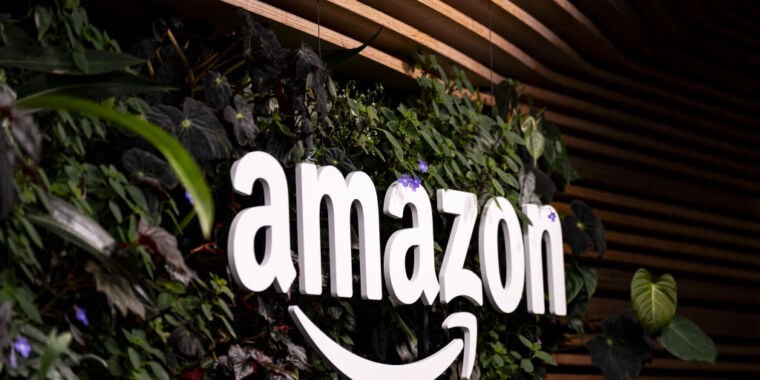Last week, the Federal Trade Commission sued Amazon, alleging that the online retailer was illegally maintaining a monopoly. Much of the FTC's complaint against Amazon was redacted, but The Wall Street Journal yesterday revealed key details obscured in the complaint regarding a secret algorithm. The FTC alleged that Amazon once used the algorithm to raise prices across the most popular online shopping destinations.
People familiar with the FTC's allegations in the complaint told the Journal that it all started when Amazon developed an algorithm code-named "Project Nessie." It allegedly works by manipulating rivals' weaker pricing algorithms and locking competitors into higher prices. The controversial algorithm was allegedly used for years and helped Amazon to "improve its profits on items across shopping categories" and "led competitors to raise their prices and charge customers more," the WSJ reported.



I "love" US companies that increase their profit with illegal and secret algorithms (no effort). Hope for big fines (50%, here we come!)and long lasting bans.
But not only 50% of the additional profit - should be something like at least double or triple that.
It's 'The Formula' from Fight Club:
The key to preventing this kind of thing is to make sure that X is always considerably higher than A x B x C. If monetary penalties are all that are being assessed, they need to be fucking astronomical to the point that no reasonable company would even consider taking the risk of getting caught, no matter how minute that risk is. Until we start operating like that, there's simply no incentive for any of these companies to stop breaking the law.
And start throwing executives in jail.
This is the real answer
If the penalty for a crime is only a fine, then that crime only exists for the lower class
I am sorry, however you provide some interesting information, this case has noting to do with recalls.
It's a quote from Fight Club; I know this case has nothing to do with recalls. The point applies to any corporate lawsuit.
Let me re-frame it, if that helps:
The point is that the penalty / fine that's assessed needs to far out-weigh the potential benefit, taking into account the chance of getting caught / fined in the first place. If they stand to make $10 million in profit, and the penalty for getting caught is $100 million, but the chance of getting caught is only 5%, their ROI is positive and it's simple numbers - they'll do it every time.
If in the above example the penalty was $1 billion, suddenly the ROI is negative, and they won't do it. It's simply math. By having penalties that are too low to impact their overall profit, they simply don't work as a deterrant.
A $1.5 Billion fine would work as deterand.
But I am afraid US politics won't allow it.(lobbying)